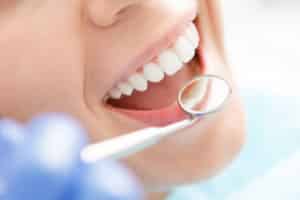Better Oral Health Can Boost Your Immune System


Did you know that how well you take care of your oral health can be an indication of how healthy you are? People that have poor oral hygiene habits often have oral health diseases or problems that can affect their immune system. There are also many autoimmune diseases that can affect your oral health. Your immune system is connected to every part of your body. If you’re not taking care of one part (such as your teeth and gums), you can experience problems from bacteria, infections, decay and more. Find out how how oral health is connected to the immune system!
Your Immune System
The immune system iis your body’s built-in defense system to help protect you against foreign infectious organisms, germs, allergens and more. Many people think there is a certain area where the immune system lies, but it is actually a system comprised of many cells, organs, proteins and tissues that goes all throughout your body. This is how your body can fight off infections whenever you get cuts or open wounds on different areas of your body.
Your mouth is one main area that plays a major role in your immune system and overall health. If you think about everything that passes through your body, it generally comes through the mouth first. The food you eat, the liquids you drink, medicines, allergens and more come through your mouth. It’s not surprising that your oral health is strongly connected to your immune system function. If you have better oral health, you can expect to have better overall health and fewer illnesses.

Autoimmune Diseases and Oral health
Many illnesses are passed through liquids such as your saliva if you share foods or drinks. Even though your immune system helps you fight off bacteria, viruses and more, that doesn’t mean you won’t get sick. In fact, you generally do get sick once, and your body builds up a resistance to that illness so you become immune. However, there are autoimmune diseases that your body struggles to fight off, and they can mess with your oral health and cause oral problems. Some autoimmune diseases (out of about 80) that affect your oral health include:
- Sjogren’s Syndrome: Sjogren’s affects the function of the glands, which can lead to dry mouth. Less saliva production and dry mouth can lead to chronic bad breath, tooth decay and gum disease. You need ample saliva in the mouth to restore minerals to the teeth and to wash away plaque and food so they don’t cause decay and gum problems.
- Crohn’s Disease: This can cause gum swelling, ulcers in the mouth and lip swelling. Patients can also experience problems with eating and swallowing if they don’t monitor this disease.
- Scleroderma and More: This immune system disease and others such as Hasimoto’s disease, can cause swelling and difficulty swallowing.
The Connection With Diabetes
Diabetes is one chronic disease that dentists can be especially helpful with. Patients who have diabetes often have problems with gum disease and tooth decay. This is because diabetes affects your body’s ability to control blood sugar levels. Insulin is a hormone responsible for converting sugar into energy. However, there isn’t enough insulin to control the blood sugar like it should. This leads to inflammation in the body, which damages tissues, organs and cells and makes infections much more likely.
Your mouth doesn’t escape the problems that diabetes can cause. A patient can have inflammation in their gums because of the effects of diabetes. This can lead to swollen gums and gum disease. However, the opposite can also happen. People who don’t brush and floss their teeth enough will begin to have problems with tooth decay and gum disease. That gum disease will cause inflammation, which can cause gum infections that affect your entire body. Diabetes can and generally does affect your oral health and your oral health habits directly affect whether you have more complications with diabetes. If you are a patient with this disease, be very vigilant in oral health practices so that you can keep your teeth and gums healthy.

Better Oral Health, Better Immune System
Do you want to have better oral health and a better immune system? Start by taking better care of your mouth! Taking better care of your mouth involves several parts. First, you must eat better to stay healthier overall. A proper diet full of all the essential nutrients will help you avoid chronic conditions and diseases. If your diet is a healthy one that is low in sugar, your mouth will make less decay-causing plaque. Plaque is a byproduct of bacteria in your mouth and sugars in your foods and drinks. It’s also what leads to tooth decay and gum disease.
If you are already susceptible to gum disease or you currently have it, you can reduce many of your health symptoms by brushing and flossing more. The American Dental Association recommends brushing at least 2 times a day and flossing 1-2 times. If you have an autoimmune disease or diabetes, you should brush more often than this. You should also be seeing your dentist at least 2 times a year, if not every 3-4 months. A dentist can keep your oral health in check and in a range that reduces your immune system problems. Better oral health can significantly lead to a better immune system.
Help For Chronic Problems
Some people see significant improvement with their oral health problems if they implement a better oral hygiene routine. However, autoimmune diseases and chronic conditions like diabetes will affect a person’s mouth even if they practice proper oral hygiene. This is why you should see your dentist often and work closely with them to have better oral health continually and fewer oral problems. If you have a chronic health condition or you have noticed changes in your oral health, call Dr. Ania’s office at 303-443-0998!


